All Stories
-
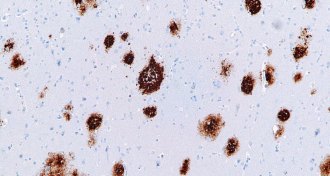 Neuroscience
NeuroscienceAntibiotics might fight Alzheimer’s plaques
A new study found that antibiotics hit Alzheimer’s plaques in the brains of mice.
-
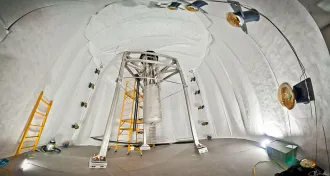 Particle Physics
Particle PhysicsLatest search for dark matter comes up empty
Scientists continue to come up empty-handed in the search for dark matter. The latest effort from the LUX experiment found no evidence for dark matter.
-
 Animals
AnimalsTo douse hot hives, honeybee colonies launch water squadrons
The whole superorganism of a honeybee colony has sophisticated ways of cooling down.
By Susan Milius -
 Health & Medicine
Health & MedicineNail-biting and thumb-sucking may not be all bad
Nail-biters and thumb-suckers may actually be warding off allergies by introducing germs to their mouths, a new study suggests.
-
 Animals
AnimalsSome primates prefer nectar with a bigger alcohol kick
Aye-ayes and slow lorises may be able to discern the alcohol content of boozy nectar and go for more potent drinks.
-
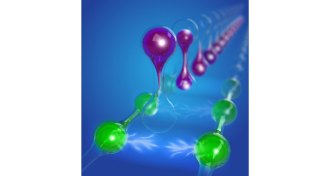 Physics
PhysicsElectrons have potential for mutual attraction
Electrons usually repel each other, but new research shows pairs of electrons can be attracted due to their repulsion from other electrons.
-
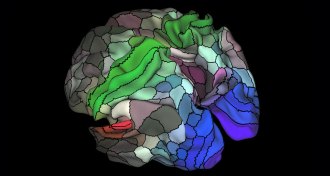 Neuroscience
NeuroscienceNew brain map most detailed yet
By combining different types of data, researchers have drawn a new detailed map of the human brain.
-
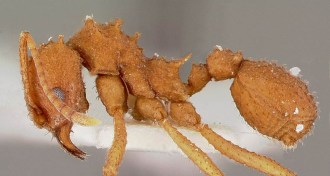 Animals
AnimalsTiny ants move a ton of soil
For the first time, scientists have quantified how much soil ants move underground.
-
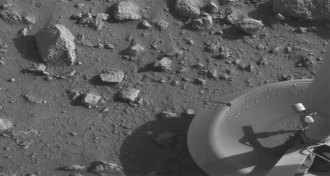 Planetary Science
Planetary Science40 years ago, Viking 1 pioneered U.S. exploration on Mars
Forty years ago, Viking 1 became the first U.S. mission to land safely on the surface of Mars.
-
 Health & Medicine
Health & MedicineAnesthesia steals consciousness in stages
Brains regions that are synchronized when awake stop communicating as monkeys drift off.
-
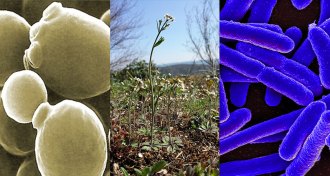 Genetics
GeneticsSwapping analogous genes no problem among species
Many genes are interchangeable between yeast, bacteria, plants and humans.
-
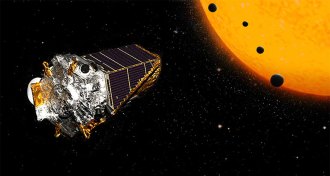 Astronomy
AstronomyKepler tally grows: 104 more exoplanets confirmed
Kepler space telescope adds another 104 planets to its growing census of worlds in our galaxy.